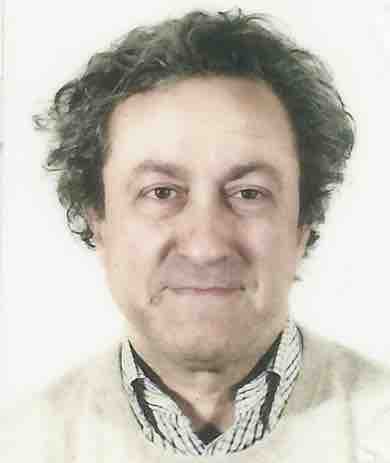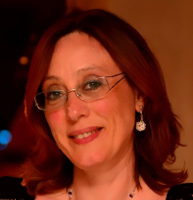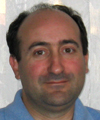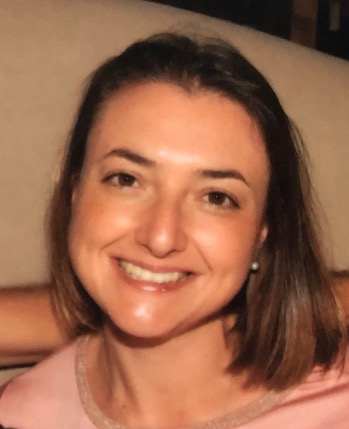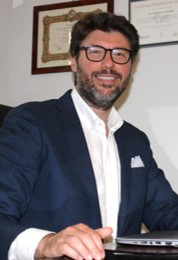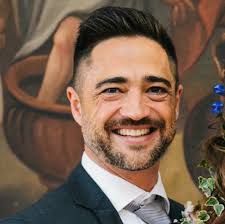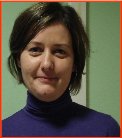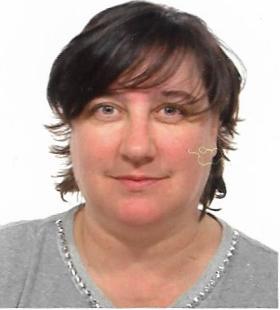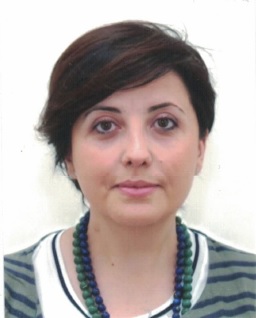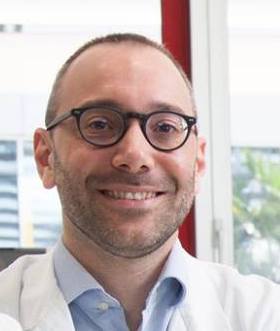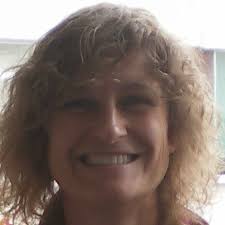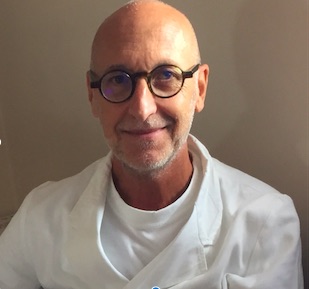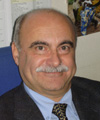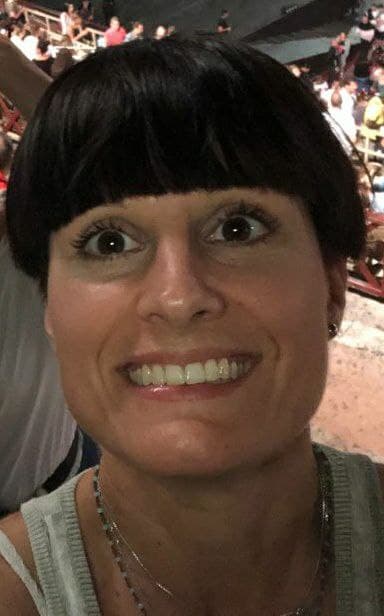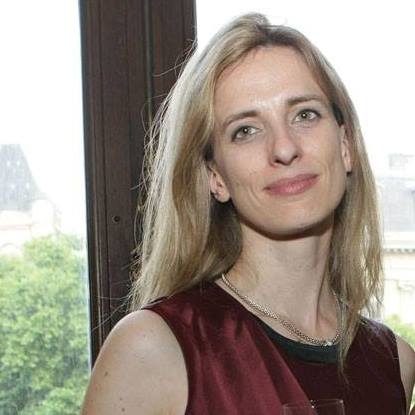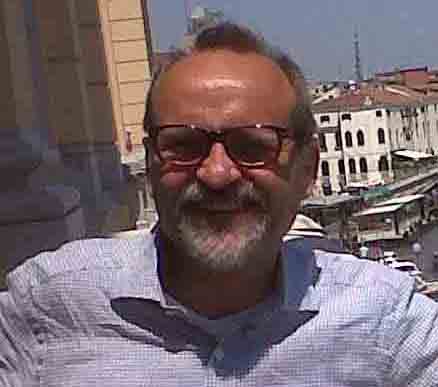Studying at the University of Verona
Here you can find information on the organisational aspects of the Programme, lecture timetables, learning activities and useful contact details for your time at the University, from enrolment to graduation.
Academic calendar
The academic calendar shows the deadlines and scheduled events that are relevant to students, teaching and technical-administrative staff of the University. Public holidays and University closures are also indicated. The academic year normally begins on 1 October each year and ends on 30 September of the following year.
Course calendar
The Academic Calendar sets out the degree programme lecture and exam timetables, as well as the relevant university closure dates..
| Period | From | To |
|---|---|---|
| FISIO VR 2A1S | Oct 1, 2019 | Nov 15, 2019 |
| FISIO VR 3A1S | Oct 1, 2019 | Nov 8, 2019 |
| FISIO VR 1A1S | Oct 7, 2019 | Dec 20, 2019 |
| FISIO VR 2A2S | Feb 3, 2020 | Mar 20, 2020 |
| FISIO VR 3A2S | Mar 9, 2020 | Apr 3, 2020 |
| FISIO VR 1A2S | Mar 9, 2020 | May 8, 2020 |
| Session | From | To |
|---|---|---|
| FISIO VR SESSIONE INVERNALE | Jan 7, 2020 | Jan 31, 2020 |
| FISIO VR SESSIONE ESTIVA | Jun 29, 2020 | Jul 31, 2020 |
| FISIO VR SESSIONE AUTUNNALE | Sep 1, 2020 | Sep 30, 2020 |
| Session | From | To |
|---|---|---|
| FISIO VR SESSIONE AUTUNNALE | Nov 1, 2020 | Dec 23, 2020 |
| FISIO VR SESSIONE PRIMAVERILE | Mar 1, 2021 | Apr 30, 2021 |
| Period | From | To |
|---|---|---|
| FESTIVITA' OGNISSANTI | Nov 1, 2019 | Nov 1, 2019 |
| FESTIVITA' IMMACOLATA CONCEZIONE | Dec 8, 2019 | Dec 8, 2019 |
| Vacanze di Natale | Dec 24, 2019 | Jan 6, 2020 |
| VACANZE DI PASQUA | Apr 10, 2020 | Apr 15, 2020 |
| FESTA DELLA LIBERAZIONE | Apr 25, 2020 | Apr 25, 2020 |
| Festa del Lavoro | May 1, 2020 | May 1, 2020 |
| FESTIVITA' DEL SANTO PATRONO SAN ZENO | May 21, 2020 | May 21, 2020 |
| FESTA DELLA REPUBBLICA | Jun 2, 2020 | Jun 2, 2020 |
| Description | Period | From | To |
|---|---|---|---|
| FISIO VR 3^ anno - 1^semestre (1 periodo) | FISIO VR 3^ anno - 1^semestre (1 periodo) | Nov 11, 2019 | Dec 20, 2019 |
| FISIO VR 2^ anno - 1^semestre | FISIO VR 2^ anno - 1^semestre | Nov 18, 2019 | Dec 20, 2019 |
| FISIO VR 3^ anno - 1^semestre (2 periodo) | FISIO VR 3^ anno - 1^semestre (2 periodo) | Feb 3, 2020 | Mar 6, 2020 |
| FISIO VR 1^ anno - 1^semestre | FISIO VR 1^ anno - 1^semestre | Feb 3, 2020 | Mar 6, 2020 |
| FISIO VR 2^ anno - 2^semestre | FISIO VR 2^ anno - 2^semestre | Mar 23, 2020 | Jun 26, 2020 |
| FISIO VR 3^ anno - 2^semestre | FISIO VR 3^ anno - 2^semestre | Apr 6, 2020 | Jun 26, 2020 |
| FISIO VR 1^ anno - 2^semestre | FISIO VR 1^ anno - 2^semestre | May 11, 2020 | Jun 26, 2020 |
Exam calendar
Exam dates and rounds are managed by the relevant Medicine Teaching and Student Services Unit.
To view all the exam sessions available, please use the Exam dashboard on ESSE3.
If you forgot your login details or have problems logging in, please contact the relevant IT HelpDesk, or check the login details recovery web page.
Should you have any doubts or questions, please check the Enrollment FAQs
Academic staff
 cinzia.biondani@ospedaleuniverona.it
cinzia.biondani@ospedaleuniverona.it
 davideconte.bioeng@gmail.com
davideconte.bioeng@gmail.com
 annamaria.molino@univr.it
annamaria.molino@univr.it
 nicola.pelizzari@univr.it
nicola.pelizzari@univr.it
Pighi Michele
 michele.pighi@univr.it
michele.pighi@univr.it
 0458122320
0458122320
Study Plan
The Study Plan includes all modules, teaching and learning activities that each student will need to undertake during their time at the University.
Please select your Study Plan based on your enrollment year.
1° Year
| Modules | Credits | TAF | SSD |
|---|
2° Year activated in the A.Y. 2020/2021
| Modules | Credits | TAF | SSD |
|---|
3° Year activated in the A.Y. 2021/2022
| Modules | Credits | TAF | SSD |
|---|
| Modules | Credits | TAF | SSD |
|---|
| Modules | Credits | TAF | SSD |
|---|
| Modules | Credits | TAF | SSD |
|---|
Legend | Type of training activity (TTA)
TAF (Type of Educational Activity) All courses and activities are classified into different types of educational activities, indicated by a letter.
ADVANCED METHODOLOGIES IN MUSCLE-SKELETAL PHYSIOTHERAPY AND RESEARCH INTRODUCTION (2020/2021)
The teaching is organized as follows:
Learning outcomes
Provide basic knowledge about manual therapy strategies in musculoskeletal disorders, the methodology of sports physiotherapy, the methodology of evidence-based physiotherapy, inferential statistics in clinical research as well as logics and philosophy of science in physiotherapy. MODULE: ADVANCED MANUAL THERAPY STRATEGIES IN MUSCULO-SKELETAL DISORDERS Know the general principles and procedures for the application of specific techniques of manual therapy, indications/contraindications, differences in the different approaches of manual therapy in order to choose the most effective method with an EBP approach. Apply them to some sample cases. MODULE: PHYSIOTHERAPY METHODOLOGY BASED ON EVIDENCE Know the principles of the Evidence Based Practice, the different types of studies and research questions (descriptive, etiology/risk, diagnostic/evaluation, prognostics, treatment). Know the concepts of systematic review, meta-analysis and guidelines. Consolidate the psychometric aspects of evaluation strategies. Know how to correctly formulate a research question, know how to build a search string and carry out research using the main databases in physiotherapy and rehabilitation. Know how to critically read a scientific study. MODULE: INFERENTIAL STATISTICS IN CLINICAL RESEARCH Know the fundamental elements of the inferential statistics useful for inducing or inferring the properties of a population on the basis of known data relating to a sample. Acquire knowledge concerning experimental design, sampling, analysis and distribution of variables. MODULE: LOGICS AND PHILOSOPHY OF SCIENCE IN PHYSIOTHERAPY Understand the essential problems related to the philosophy of science and logics, the links between philosophical reflection on the scientific method and the practice of science in physiotherapy. Acquire knowledge and skills in the understanding of a philosophical text, ability to apply this knowledge to philosophical issues, autonomy of judgment regarding the implications and meaning of topics, communication skills aimed at the correct expression of philosophical contents, ability to learn philosophical contents.
Program
------------------------ MM: METODOLOGIA DELLA FISIOTERAPIA BASATA SULLE EVIDENZE ------------------------ The course will cover the following topics: 1. What is an experimental research project 2. What are the critical issues of research in rehabilitation medicine 3. EBM and publication of scientific research 4. How to evaluate the quality of a research project METHODS Classroom meetings will involve lectures (with slides) and group discussions. ------------------------ MM: LOGICA CLINICA E FILOSOFIA DELLA SCIENZA IN FISIOTERAPIA ------------------------ LOGIC Definition of Logic Short story of Logic Uses and functions of language Informal fallacies of relevance Informal fallacies of ambiguity Deductive reasoning and related fallacies Inductive reasoning and calculation of probability Writing a scientific paper ------------------------ MM: STATISTICA INFERENZIALE IN RICERCA CLINICA ------------------------ The course is structured in remote theoretical lessons (10h). The teaching material is made available to the students on the e-learning web page of the course (Moodle platform). - Random variables - Gauss, Student's T and chi-squared distributions - An outline of sampling theory - Sample distribution of an estimator - Confidence interval of one mean and one proportion - The logic of the statistical test: null hypothesis and alternative hypothesis, type I and type II errors, power of a statistical test, p-value - Z, Student's T and chi-squared tests ------------------------ MM: STRATEGIE AVANZATE DI TERAPIA MANUALE NEI DISORDINI MUSCOLOSCHELETRICI ------------------------ LECTURES: - Manual therapy o definition, o history, o future prospects, o clinical reasoning, o Italian and global policy groups. - Articular techniques: o joint dysfunction: definitions, characteristics, etiology of joint stiffness; o therapeutic solutions: definitions, characteristics, indications and contraindications of the physiological mobilization, effect adverse and manipulations (HVLA); o the assessment parameters: the sequence pain / resistance / spasm, the "joint play", the "limit", the "tissue resistance in range"; o the treatment parameters: duration, frequency, velocity, intensity. - Myofascial techniques: o myofascial dysfunction: definition, characteristics, etiology of trigger points and tender points; o therapeutic solutions: definitions, characteristics, indications and contraindications of passive techniques (ischemic compression, trigger point pressure release, positional release therapy) and active (hold-relax, agonist-contraction); o the assessment parameters: the "taut band", the "twich response", the "jump's sign"; o the treatment parameters: duration, frequency, velocity, intensity. - Neural Techniques: o neural dysfunction: definition, characteristics, etiology of nerve problems and mechanical interface; o therapeutic solutions: definitions, characteristics, indications and contraindications of the data on the nerve and mechanical interface; o the assessment parameters: the resistance and the evocation of the symptoms. - Therapeutic exercises: o typology, posology, goal-oriented approach (force, resistance, coordination, aerobic). SKILL LAB PRACTICE: - Articular techniques: physiological and accessory mobilization of the upper and lower quadrant (evaluation and treatment of ankle, knee, hip, wrist, elbow, shoulder complex); - Myofascial techniques: identification and treatment of trigger points and tender points charged to the upper quadrant, and lower trunk (evaluation and treatment using ischemic compression, trigger point pressure release, positional release therapy, hold-relax, agonist-contraction); - Neural Techniques: upper and lower quadrant of neurotensione test (assessment and treatment using SLUMP, SLR, PKB, ULNT1). - Therapeutic Exercises: typology, posology, examples of goal-oriented approach (force, resistance, coordination, aerobic)
Bibliography
| Author | Title | Publishing house | Year | ISBN | Notes |
|---|---|---|---|---|---|
| M.A. Jones, D. Rivett | Clinical Reasoning in Musculoskeletal Practice (Edizione 2) | Elsevier | 2019 | 9780702059766 | |
| Verlato G, Zanolin ME | Esercizi di Statistica Medica, Informatica ed Epidemiologia | Libreria Cortina Editrice, Verona | 2000 | ||
| IRVING M. COPI, CARL COHEN | Introduzione alla logica | Il Mulino | 1999 | ||
| Swinscow TDV, Campbell MJ | Le Basi della Statistica per Scienze Bio-mediche | Edizioni Minerva Medica | 2004 | ||
| Triola MM, Triola MF | Statistica per le Discipline Biosanitarie | Pearson | 2009 |
Examination Methods
The final test consists of 4 exams, one for each unit. To pass the final test, the student must get a score of not less than 18/30 in each exam. The final mark (in thirtieths) is the weighted average over credits of the 4 scores.
------------------------
MM: METODOLOGIA DELLA FISIOTERAPIA BASATA SULLE EVIDENZE
------------------------
REQUIREMENT OF ACCESS TO EXAM To attend the exam, 75% of class hours are required. The presence in class will be recorded by signature. FEATURES OF THE EXAM The objective of the exam consists in verifying the level of achievement of the previously indicated training objectives. The exam will consist of a written test with multiple-choice or open questions taken from the topics discussed in class.
------------------------
MM: LOGICA CLINICA E FILOSOFIA DELLA SCIENZA IN FISIOTERAPIA
------------------------
Written text
------------------------
MM: STATISTICA INFERENZIALE IN RICERCA CLINICA
------------------------
The final test is a written exam in presence with short answer questions and multiple choice questions. The remote exam is however guaranteed for all students who request it in the academic year 2020/21. The aim of the test is to verify the knowledge of all the topics discussed. The final evaluation is expressed in thirtieths.
------------------------
MM: STRATEGIE AVANZATE DI TERAPIA MANUALE NEI DISORDINI MUSCOLOSCHELETRICI
------------------------
Goal: To pass the exam, students must demonstrate to: - know the theoretical contents of clinical reasoning; the articular, myofascial and neural evaluation and treatment; the therapeutic exercise; - know how to deliver articular, myofascial and neural evaluation and treatment techniques; - know how to plan and demonstrate therapeutic exercises. Contents: The contents of the exam cover all the topics discussed in the lesson and included in the program of this course. In summary: - clinical reasoning in manual therapy; - articular, myofascial and neural techniques (theoretical concepts, evaluation and treatment techniques); - the therapeutic exercise (theoretical concepts, the exercise of the exercise). Method of assessment: - oral test (to test the theoretical knowledge) by interview with the teacher; - practical testing (to test manual skills) by demonstration. Methods of assessment: - oral test (score 0-30); - practical test (score 0-30); The final vote will be given by the average of the two individual tests and it will be expressed in 30th. There are no differences in exam between attending and non-attending students.
Career prospects
Module/Programme news
News for students
There you will find information, resources and services useful during your time at the University (Student’s exam record, your study plan on ESSE3, Distance Learning courses, university email account, office forms, administrative procedures, etc.). You can log into MyUnivr with your GIA login details: only in this way will you be able to receive notification of all the notices from your teachers and your secretariat via email and soon also via the Univr app.
Gestione carriere
Graduation
Documents
| Title | Info File |
|---|---|
|
|
pdf, it, 367 KB, 19/02/24 |
|
|
pdf, it, 142 KB, 19/01/24 |
|
|
pdf, it, 862 KB, 19/01/24 |
|
|
pdf, it, 273 KB, 25/03/24 |
Appelli d'esame
AVVISO IMPORTANTE
Gli appelli d’esame si aprono per l’intero Insegnamento e non per singoli moduli.
Per il singolo modulo di cui non è stato aperto appello, come sopra descritto, una settimana prima dell'esame, è OBBLIGATORIO comunicare, utilizzando la propria mail istituzionale o di classe, al/i docente/i, l’intenzione di sostenere l’esame stesso.
Negli allegati, divisi per anno, sono indicate, dove comunicate dai Coordinatori d’Insegnamento, tutte le date, gli orari, le aule e le modalità degli esami.
L’iscrizione agli APPELLI D'ESAME APERTI ON LINE è OBBLIGATORIA.
Documents
| Title | Info File |
|---|---|
|
|
pdf, it, 511 KB, 20/03/24 |
|
|
pdf, it, 598 KB, 15/04/24 |
|
|
pdf, it, 505 KB, 12/04/24 |
|
|
pdf, it, 313 KB, 02/10/23 |
Tirocinio professionalizzante
a) Finalità del Tirocinio Le attività di tirocinio sono finalizzate a far acquisire allo studente le competenze specifiche previste dal profilo professionale. Per conseguire tali finalità formative, si possono attivare convenzioni con strutture che rispondano ai requisiti di idoneità per attività, dotazione di servizi e strutture. I 60 crediti minimi riservati al tirocinio sono da intendersi come impegno complessivo necessario allo studente per raggiungere le competenze professionali “core” previste dal rispettivo profilo professionale. Il tirocinio professionale comprende: - sessioni tutoriali che preparano lo studente all’esperienza; - esercitazioni e simulazioni in cui si sviluppano le abilità tecniche, relazionali e metodologiche in situazione protetta prima o durante la sperimentazione nei contesti reali; - esperienze dirette sul campo con supervisione; - sessioni tutoriali e feedback costanti; - compiti didattici, elaborati e approfondimenti scritti specifici e mandati di studio guidato. b) La valutazione delle competenze acquisite in tirocinio Le esperienze di tirocinio devono essere progettate, valutate e documentate nel percorso dello studente. Durante ogni esperienza di tirocinio lo studente riceve valutazioni formative sui suoi progressi sia attraverso colloqui e schede di valutazione. Al termine di ciascun anno di corso viene effettuata una valutazione certificativa per accertare i livelli raggiunti dallo studente nello sviluppo delle competenze professionali attese. Tale valutazione è la sintesi delle valutazioni formative via via documentate durante l’anno di corso, il profitto raggiunto negli elaborati scritti e le performance dimostrate all’esame di tirocinio che può essere realizzato con colloqui, prove scritte applicative, esami simulati. La valutazione annuale è certificata da una Commissione presieduta dal Coordinatore della didattica professionale e composta almeno da un docente e da un Tutor Clinico. La valutazione certificativa del tirocinio sarà espressa in trentesimi in base al livello di raggiungimento degli obiettivi. Verrà registrato come “ritirato” lo studente che sospende il tirocinio per problemi di salute, gravidanza o per motivazioni personali; sarà registrata come “respinto” quando lo studente durante il percorso o alla fine del tirocinio non ha raggiunto livelli sufficienti negli obiettivi formativi. L’esame annuale di tirocinio prevede un unico appello per anno accademico, salvo particolari situazioni per le quali la commissione didattica potrà concedere un appello straordinario. c) Prerequisiti di accesso al tirocinio Pag. 7 di 12 Il Coordinatore della didattica professionale ammette alla frequenza dell’esperienza di tirocinio previsto per l’anno di corso gli studenti che: hanno frequentato regolarmente le attività teoriche, in particolare gli insegnamenti delle discipline professionali dell’anno in corso e dell’anno precedente; hanno partecipato regolarmente ai laboratori professionali ritenuti propedeutici al tirocinio d) Assenze dal tirocinio Lo studente che si assenta dal tirocinio per periodi brevi (assenze inferiori ad una settimana durante l’anno solare) può recuperare tali assenze su autorizzazione del tutor/clinico salvaguardando orari che offrono opportunità di apprendimento. Non sono ammessi recuperi di giornate isolate al di fuori del periodo dedicato al tirocinio. Lo studente che si assenta dal tirocinio per periodi lunghi (assenze superiori ad una settimana nell’anno solare) – per gravi e giustificati motivi – deve concordare con il Coordinatore della didattica professionale un piano di recupero personalizzato. Lo studente che conclude positivamente il tirocinio di anno con un debito orario sul monte ore previsto (non superiore a 15 ore), può essere ammesso all’esame annuale di tirocinio se l’assenza non ha compromesso il raggiungimento degli obiettivi di anno e può recuperare il suddetto debito entro la fine del 3° anno. Lo studente è tenuto a documentare le ore di presenza in tirocinio nel libretto, a farle controllare e controfirmare dal tutor e segnalare tempestivamente l’esigenza di recupero di eventuali assenze. e) Sospensione dal tirocinio Le motivazioni che possono portare alla sospensione dal tirocinio sono le seguenti: Motivazioni legate allo studente: - studente potenzialmente pericoloso per la sicurezza degli utenti/tecnologia o che ha ripetuto più volte errori che mettono a rischio la vita dell’utente; - studente che non ha i prerequisiti e che deve recuperare obiettivi formativi propedeutici ad un tirocinio formativo e sicuro per gli utenti; - studente che frequenta il tirocinio in modo discontinuo. Altre motivazioni: - stato di gravidanza nel rispetto della normativa vigente; - studente con problemi psicofisici che possono comportare stress o danni per lui, per i malati o per l’équipe della sede di tirocinio o tali da ostacolare le possibilità di apprendimento delle competenze professionali core. La sospensione temporanea dal tirocinio è proposta dal tutor al Coordinatore della didattica professionale tramite apposita relazione, che verrà discussa e motivata in un colloquio con lo studente. La sospensione è formalizzata con lettera del Coordinatore della didattica professionale allo studente. La riammissione dello studente al tirocinio è concordata con tempi e modalità definite dal Coordinatore della didattica professionale sentito il tutor che l’ha proposta. Qualora persistano le difficoltà che hanno portato alla sospensione temporanea dal tirocinio o ci sia un peggioramento che impedisce l’apprendimento delle abilità professionali, il Coordinatore della didattica professionale ha facoltà di proporre al Collegio Didattico la sospensione definitiva dello studente dal tirocinio tramite apposita relazione che documenti approfonditamente le motivazioni f) Studenti ripetenti per profitto insufficiente in tirocinio. Lo studente ripetente per un profitto insufficiente in tirocinio concorda con il Coordinatore della didattica professionale un piano di recupero personalizzato sulla base dei propri bisogni formativi che potrà prevedere un prolungamento dell’attività di tirocinio. Per essere ammesso a frequentare l’esperienza di tirocinio prevista dal piano di recupero personalizzato, allo studente ripetente è richiesto di Pag. 8 di 12 aver ripetuto le esperienze di laboratorio ritenute propedeutiche al tirocinio dal Coordinatore della didattica professionale. Lo studente insufficiente in tirocinio non può ripetere più di una volta il tirocinio per ogni anno di corso. Ciò vale anche nel caso in cui lo studente sospenda il tirocinio prima del termine previsto dal calendario e non si presenti all’Esame Annuale di Tirocinio. g) Tirocinio supplementare È possibile attivare un tirocinio supplementare in due casi: - studente ripetente o fuori corso, che abbia superato positivamente il tirocinio dell’anno in corso - studente che richieda un approfondimento tematico. Lo studente che richiede di svolgere un’esperienza supplementare dovrà rivolgersi al Coordinatore della didattica professionale che risponderà alle richieste compatibilmente con le esigenze organizzative. La frequenza dell’esperienza supplementare non deve interferire con il completamento dei suoi impegni di recupero teorico. L’esperienza supplementare dovrà essere valutata e registrata a tutti gli effetti sul libretto di tirocinio a scopi assicurativi, ma non potrà essere considerata un anticipo dell’anno successivo. h) Sciopero dei dipendenti delle strutture di tirocinio In caso di sciopero del personale dipendente delle strutture convenzionate per il tirocinio, che svolga attività di Guida, le esperienze di tirocinio saranno sospese. Tale assenza non dovrà essere recuperata, le ore saranno riconosciute come studio individualePer maggiori informazioni consultare la pagina del servizio
Orario lezioni
Si pubblicano gli orari delle lezioni relativi 2° semestre: Gli orari potrebbero subire alcune modifiche; pertanto si consiglia di consultare l'orario delle lezioni giornalmente nell‘area riservata MyUnivr e/o ORARIO LEZIONI.
Documents
| Title | Info File |
|---|---|
|
|
pdf, it, 697 KB, 24/08/23 |
|
|
pdf, it, 759 KB, 12/04/24 |
|
|
pdf, it, 712 KB, 28/02/24 |
|
|
pdf, it, 739 KB, 15/03/24 |
Student login and resources
Attività Seminariali/a scelta dello studente
Calendario delle Attività Seminariali tip F/a scelta dello studente
3 ANNO: 15/09/2022 SEMINARIO " EVIDENZE E PRASSI NELL'OSSERVAZIONE DEL PAZIENTE CON LOMBALGIA"
Documents
| Title | Info File |
|---|---|
|
|
pdf, it, 864 KB, 15/09/22 |

